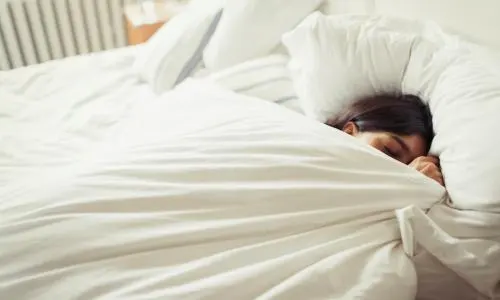
Article by
The shorter you sleep the shorter your life. The decimation of sleep throughout industrialized nations is having a catastrophic impact on our health, our wellness, even the safety and the education of our children . It's a silent sleep loss epidemic, and it's fast becoming one of the greatest public health challenges that we face in the 21st century. The disruption of sleep is an underappreciated factor that is contributing to cognitive decline or memory decline in aging, and most recently we've discovered, in Alzheimer's disease as well. There's a structure that sits on the left and the right side of your brain, called the hippocampus. It's very good at receiving new memory files and then holding on to them. Yet in those people who were sleep-deprived, we actually couldn't find any significant signal whatsoever. Without sleep, the memory circuits of the brain essentially become waterlogged, as it were, and you can't absorb new memories. We have since discovered that a lack of sleep will even erode the very fabric of biological life itself, your DNA genetic code. So here is this study, they took a group of healthy adults and they limited them to six hours of sleep a night for one week, and they measured the change in their gene activity profile relative to when those same individuals were getting a full eight hours of sleep a night. And there were two critical findings.
First, a sizable and significant 711 genes were distorted in their activity, caused by a lack of sleep.
The second result was that about half of those genes were actually increased in their activity, genes associated with the promotion of tumors, genes associated with long-term inflammation, and genes associated with stress, and, as a consequence, cardiovascular disease. There is simply no aspect of your wellness that can retreat at the sign of sleep deprivation and get away unscathed. And at this point, you may be thinking, how do I start to get better sleep ?
What are the tips for good sleep?
The first is regularity. Go to bed at the same time, wake up at the same time, no matter whether it's the weekday or the weekend. Regularity is king, and it will anchor your sleep and improve the quantity and the quality of that sleep.
The second is to keep it cool. Your body needs to drop its core temperature by about two to three degrees Fahrenheit to initiate sleep and then to stay asleep, and it's the reason you will always find it easier to fall asleep in a room that's too cold than too hot. So, aim for a bedroom temperature of around 65 degrees, or about 18 degrees Celsius. That's going to be optimal for the sleep of most people. Sleep, unfortunately, is not an optional lifestyle luxury. Sleep is a nonnegotiable biological necessity. It is your life support system. And with that make sure you sleep well and properly.
 Monthly "Azeem English Magazine", launched in 2000, records the information about diverse fields like mental health, literature, research, science, and art. The magazine's objective is to impart social, cultural, and literary values to society.
Monthly "Azeem English Magazine", launched in 2000, records the information about diverse fields like mental health, literature, research, science, and art. The magazine's objective is to impart social, cultural, and literary values to society.
+92 51 88 93 092
First Floor, RAS Arcade, Eidhi Market, Street#124, G-13/4, Islamabad, Pakistan, 44000.